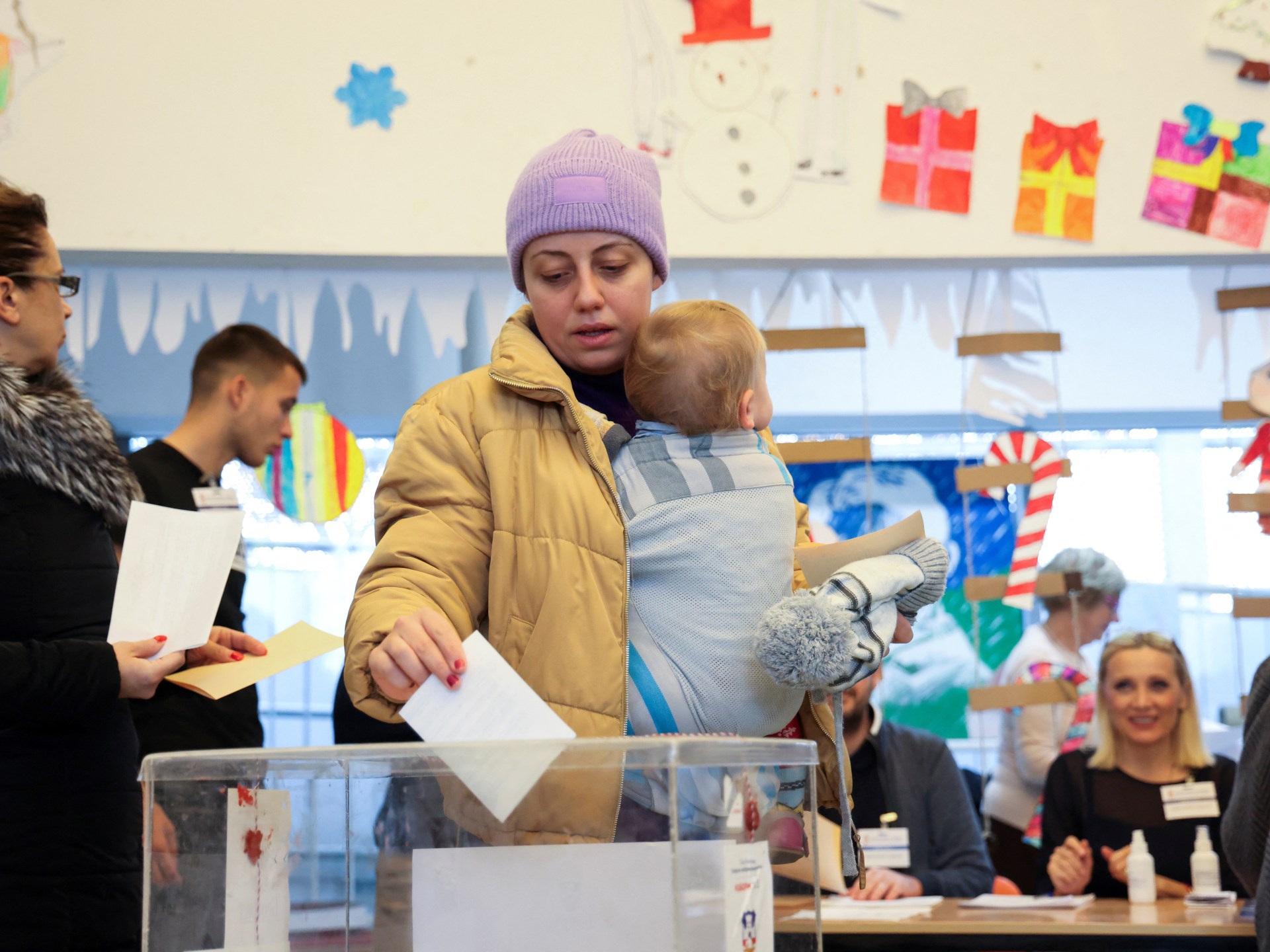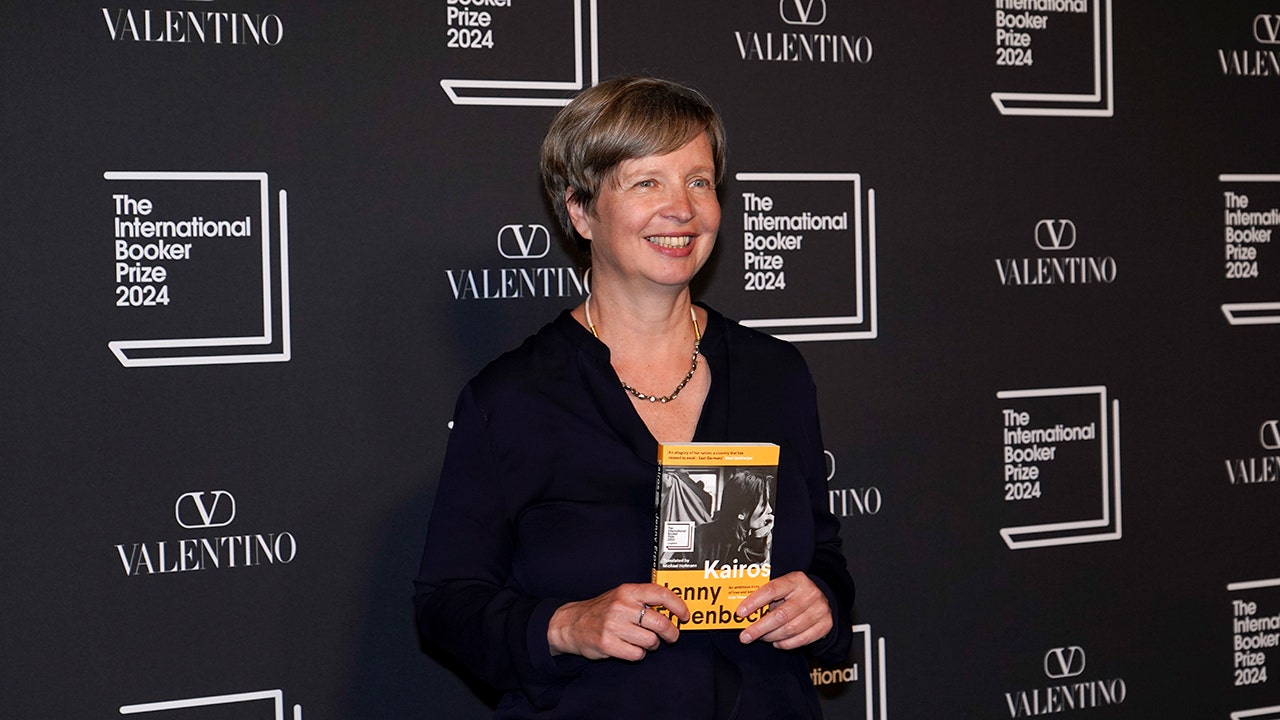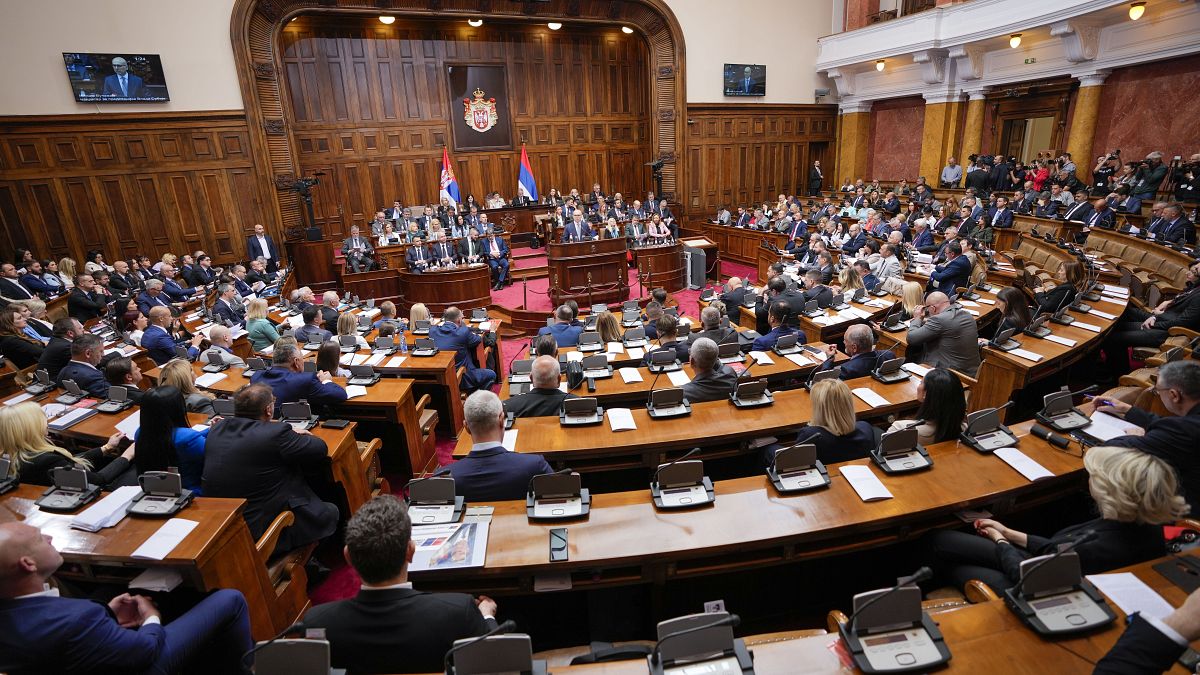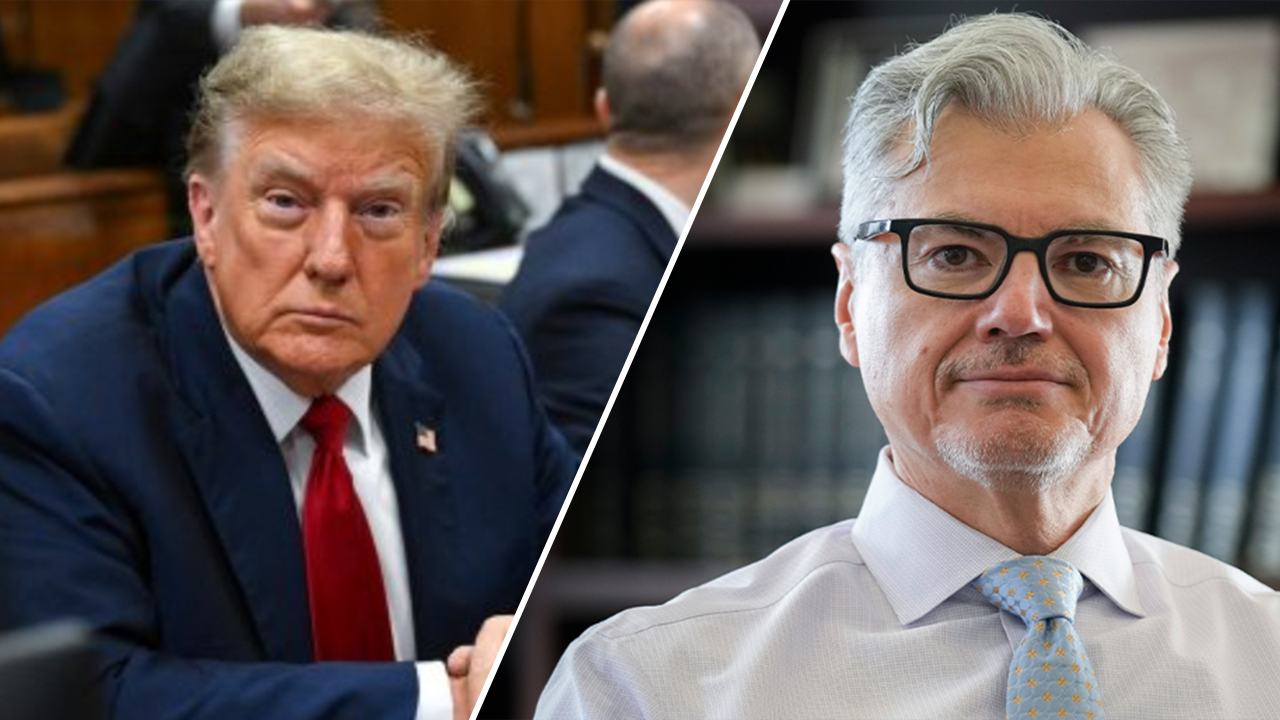World
Voting begins in Serbian parliamentary elections

While President Aleksandar Vucic is not on the ballot, the contest is seen as a referendum on his government.
Serbians have begun voting in parliamentary and local elections that will test the strength of the country’s governing party amid unrest over high inflation, corruption, and gun violence.
The snap elections, announced last month, will determine a new government for Serbia’s 250-seat parliament, as well as elect local councils in most municipalities.
President Aleksandar Vucic’s ruling right-wing Serbian Progressive Party (SPS), ahead by double-digits in the latest opinion polls, is widely expected to retain its rule in parliament.
However, the party faces challenging municipal races in the capital, Belgrade, particularly from a loose coalition of opposition parties and candidates running under the “Serbia Against Violence” banner.
While Vucic is not on the ballot, the contest is largely seen as a referendum on his government and rule.
‘Serbia Against Violence’
Vucic and his SPS party have been rattled this year by antigovernment protests that brought hundreds of thousands to the streets and led to the formation of the “Serbia Against Violence” alliance challenging his party’s rule.
The demonstrations were first sparked by back-to-back mass shootings in May that killed 18 people, including nine children.
But they quickly morphed into broader antigovernment rallies, with critics expressing anger over rising inflation and perceived government corruption.
Vucic has repeatedly dismissed his critics and the protests as a foreign plot, warning that Serbia would be directionless without his leadership.
“It’s not about me leaving power, but about them destroying everything,” he told supporters at a recent rally.
“It would take us 20 years to fix everything … That’s why we’ll beat them more convincingly than ever.”
Wall-to-wall coverage
Vucic has been omnipresent in the run-up to Sunday’s vote – plastered on billboards and skyscrapers and the focus of wall-to-wall coverage on news channels.
To blunt the hard edges of rising prices ahead of the polls, Vucic unleashed a barrage of state spending – increasing pensions and handing out cash to the elderly.
The president has also promised to double average monthly salaries in the coming years while also upping pensions.
Vucic has used his more than a decade in power to consolidate control over the levers of power, including de facto control over the media.
Opposition parties and rights watchdogs accuse Vucic and the SNS of voter bribery, stifling media freedoms, violence against opponents, corruption, and ties with organised crime. He and his allies deny these allegations.
The contest comes less than two years after the last round of presidential and parliamentary polls, which saw Vucic and the SNS tighten their grip on power.
Serbia’s next government will have to navigate a series of challenges at home and abroad, especially as it seeks European Union membership.
As it continues accession talks, the EU is pressuring Serbia to normalise ties with Kosovo, its former predominantly Albanian province that declared independence in 2008, and introduce sanctions on Russia. At home, Serbia is being asked to stamp out corruption and organised crime, as well as to liberalise its economy.

World
Video: Israel Confiscates A.P.’s Camera Equipment, Shuts Down Live Feed

new video loaded: Israel Confiscates A.P.’s Camera Equipment, Shuts Down Live Feed
transcript
transcript
Israel Confiscates A.P.’s Camera Equipment, Shuts Down Live Feed
Israeli officials claimed The Associated Press had violated a new broadcasting law by providing images of northern Gaza to Al Jazeera, the pan-Arab broadcaster that the government voted to shut down.
-
Good luck. [microphone disconnects]
Recent episodes in Israel-Hamas War
World
German author Jenny Erpenbeck wins International Booker Prize for tale of tangled love affair

German author Jenny Erpenbeck and translator Michael Hofmann won the International Booker Prize for fiction on Tuesday for “Kairos,” the story of a tangled love affair during the final years of East Germany’s existence.
The novel beat five other finalists, chosen from 149 submitted novels, for the prize, which recognizes fiction from around the world that has been translated into English and published in the U.K. or Ireland. The 50,000 pounds ($64,000) in prize money is divided between author and translator.
COURT FINES GERMAN-TURKISH AUTHOR OVER ‘DEATH CAMP’ SPEECH
Canadian broadcaster Eleanor Wachtel, who chaired the five-member judging panel, said Erpenbeck’s novel about the relationship between a student and an older writer is “a richly textured evocation of a tormented love affair, the entanglement of personal and national transformations.”
Jenny Erpenbeck, author of Kairos, poses ahead of the International Booker Prize, in London, Tuesday, May 21, 2024. (AP Photo/Alberto Pezzali)
It’s set in the dying days of the German Democratic Republic, leading up to the fall of the Berlin Wall. Erpenbeck, 57, was born and raised in East Berlin, which was part of East Germany until the country disappeared with German reunification in 1990.
“Like the GDR, (the book) starts with optimism and trust, then unravels so badly,” Wachtel said.
She said Hofmann’s translation captures the “eloquence and eccentricities” of Erpenbeck’s prose.
The International Booker Prize is awarded every year. It is run alongside the Booker Prize for English-language fiction, which will be handed out in the fall.
Last year’s winner was another novel about communism and its legacy in Europe, “Time Shelter” by Bulgarian writer Georgi Gospodinov and translated by Angela Rodel.
The prize was set up to boost the profile of fiction in other languages — which accounts for only a small share of books published in Britain — and to salute the underappreciated work of literary translators.
Hoffman is the first male translator to win the International Booker Prize since it launched in its current form in 2016.
World
Serbian parliamentary minnow pushes for 'Russian law' equivalent

The proposed anti-foreign NGO law could bring more attention to the left-wing nationalist Movement of Socialists party, which currently has just two MPs in the 250-seat National Assembly.
Serbia’s Movement of Socialists party has announced it will draft a bill aiming to restrict the activities of foreign non-governmental organisations operating in the Balkan country.
The draft closely resembles the highly controversial law on foreign agents that is expected to be implemented in Georgia soon.
Defending the draft law, Movement of Socialists MP Bojan Torbica said, “Betraying one’s own country and people can no longer be a highly profitable activity.”
The proposed anti-foreign NGO law could bring more attention to the left-wing nationalist party, which currently has just two MPs in the 250-seat National Assembly.
“I really believe that it is a threat to the Republic of Serbia if there are NGOs that are donated from abroad and work here to propagate Kosovo as an independent state, to propagate the genocide in Srebrenica and the destruction of Republika Srpska,” said Đorđe Komlenski, parliamentary leader of the Movement of Socialists.
The three issues — two of which pertain to neighbouring Bosnia and Herzegovina — have been prominent talking points of nationalist politicians in Serbia ever since the disintegration of the former Yugoslavia and a series of bloody wars in the region in the 1990s.
While it is unclear whether Komlenski and Torbica alone can gather enough support to advance the law past the draft stage, civil society actors, such as the Youth Initiative for Human Rights, are concerned that the bill will impact Serbian society’s future.
Marko Milosavljević from Youth Initiative for Human Rights sees the move as a means of intimidating civil society and independent media.
“Through these announcements, we actually see the ban on the advocacy of certain democratic principles is kind of desireable,” Milosavljević said.
Serbian voters will go to the polls on 2 June to participate in a rerun of last year’s local election in 66 electoral units, including the capital, Belgrade.
The EU recently criticised Serbia, a candidate for EU membership, for not conducting free and fair elections, citing allegations of voter fraud.
-

 News1 week ago
News1 week agoSkeletal remains found almost 40 years ago identified as woman who disappeared in 1968
-

 World1 week ago
World1 week agoIndia Lok Sabha election 2024 Phase 4: Who votes and what’s at stake?
-

 World1 week ago
World1 week agoUkraine’s military chief admits ‘difficult situation’ in Kharkiv region
-

 Movie Reviews1 week ago
Movie Reviews1 week agoAavesham Movie Review
-

 News1 week ago
News1 week agoTrump, Reciting Songs And Praising Cannibals, Draws Yawns And Raises Eyebrows
-

 Movie Reviews1 week ago
Movie Reviews1 week agoUnfrosted Movie Review: A sweet origins film which borders on the saccharine
-

 World1 week ago
World1 week agoCatalans vote in crucial regional election for the separatist movement
-

 Politics1 week ago
Politics1 week agoNorth Dakota gov, former presidential candidate Doug Burgum front and center at Trump New Jersey rally
















